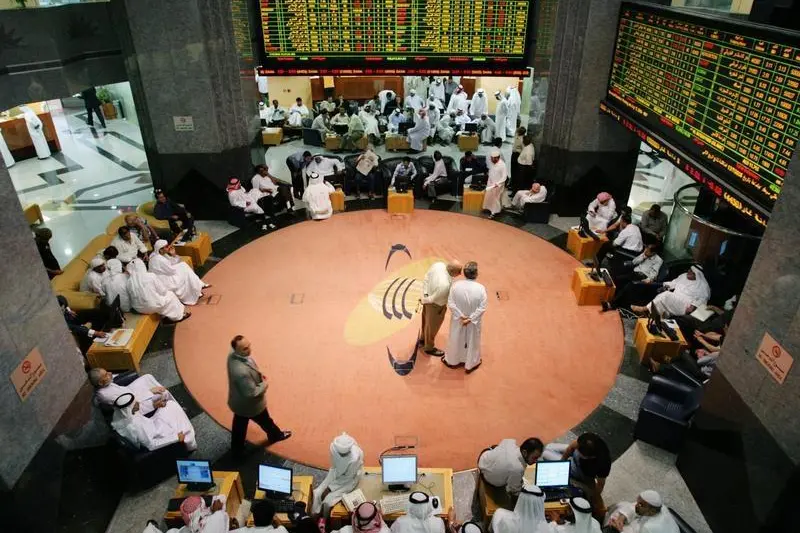PHOTO
Abu Dhabi's stock market closed higher for the fourth straight session on Monday, aided by its largest lender First Abu Dhabi Bank, while petrochemical stocks pulled the Saudi market down.
The Abu Dhabi index rose 0.8 percent, led by a 1.8 percent increase in First Abu Dhabi Bank (FAB).
The lender has been rising in recent sessions after it obtained regulatory approval to increase its foreign ownership limit to 40 percent from 25 percent.
Abu Dhabi Commercial Bank (ADCB) rose 1.1 percent.
On Sunday its chief executive Alaa Eraiqat was appointed chairman of Al Hilal Bank, with which ADCB is expected to merge, along with Union National Bank UNB.AD , in the first half of 2019.
National Marine Dredging surged 11.1 percent after the shareholders approved an increase in its cash dividend to 25 percent from the 22 percent that board had proposed.
Saudi Arabia's main index fell 0.5 percent as most of its petrochemical stocks slid, with sector leader Saudi Basic Industries shedding 0.8 percent.
Saudi Kayan Petrochemical plunged 5.4 percent after it swung to a first-quarter loss from a profit last year.
Arqaam Capital said in a note that it expects petrochemical companies' net profit to see sharp declines year-over-year on lower petrochemical prices
However, their bottom line is expected to improve quarter-over-quarter as the last quarter was impacted by inventory writedowns and seasonally higher costs.
Qatar's blue-chip index added 0.4 percent as its financial stocks rose.
Qatar National Bank, the Gulf's largest lender, rose 2.2 percent, while Gulf International Services closed up 1.9 percent after its Gulf Drilling International unit signed a 3-year contract with oil field developer North Oil.
Egypt's blue-chip index was down 0.3 percent, dragged lower by Oriental Weavers Carpet Co dropping 14.6 percent, to its biggest single-day loss since April 2009, as the stock traded ex-dividend.
Dubai's main index traded flat, with its largest listed developer Emaar Properties gaining 1 percent.
Dubai's economy is expected to grow 2.1 percent in 2019, according to a government forecast, up from 1.94 percent in 2018, which was its slowest pace since a 2009 contraction.
Kuwait's index fell 1.3 percent, with Kuwait Finance House declining 1.9 percent, while Kuwait Projects dropped 4.4 percent as the stock traded ex-dividend.
(Reporting by Ateeq Shariff in Bengaluru; Editing by Jan Harvey) ((AteeqUr.Shariff@thomsonreuters.com; +918067497129;))





















